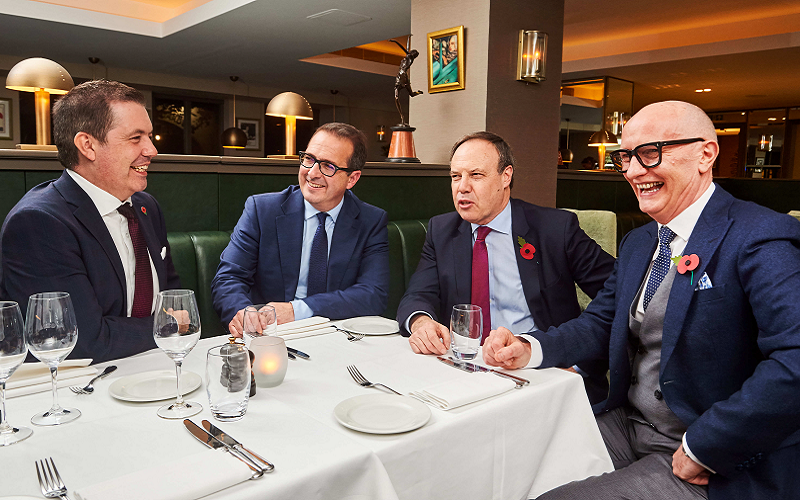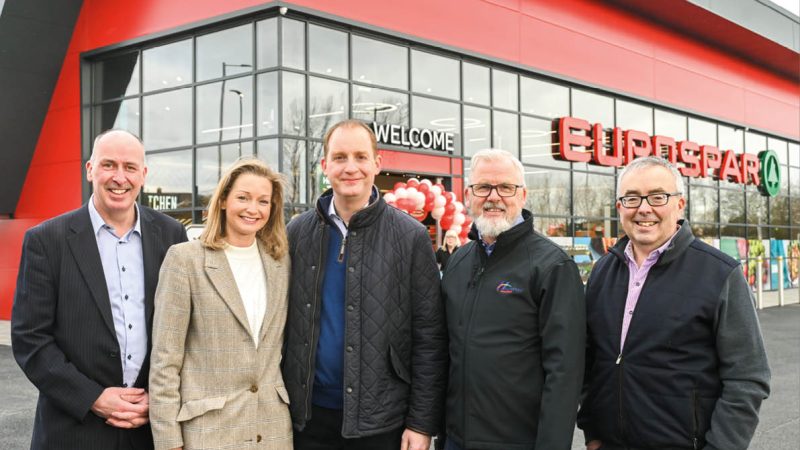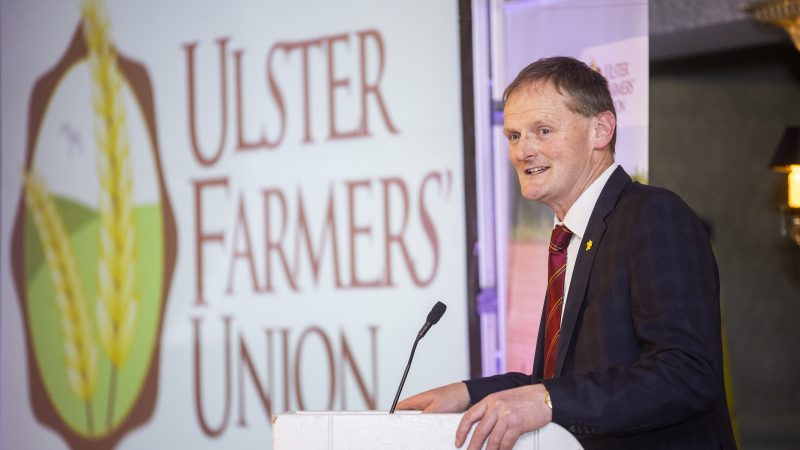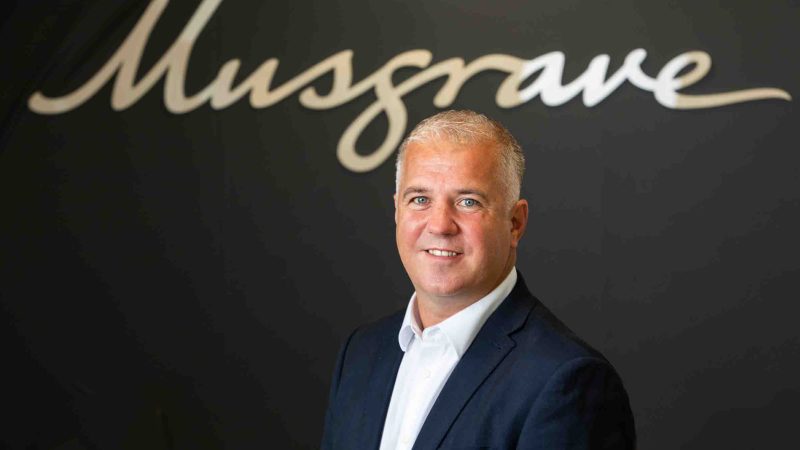New Year, new Retail NI

CEO of Retail NI, Glyn Roberts tells Neighbourhood Retailer what independent retailers have to look forward to in 2018.
It has been an eventful year for Retail NI, one that saw them shed their previous title of NIRTA and re-emerge from the chrysalis, with the catchier and shinier rebrand of Retail NI. A change that CEO, Glyn Roberts welcomes wholeheartedly. Speaking to Neighbourhood Retailer, Mr Roberts commented: “Our old identity was clunky, people weren’t sure what we were about – Retail NI is easier, simpler and more user-friendly. We have had an increase in members since the switch and the political community are more aware of us too.”
As the former head of parliamentary affairs for the Federation of Small Businesses, Glyn is well placed to take on the government in a quest for fairer policies on behalf of the business community in Northern Ireland. Citing business rates as his “number one concern”, Mr Roberts has submitted detailed proposals to the Minister of Finance and the press over the course of 2017 outlining how the business rates system should be improved.
71 per cent of Retail NI’s members saw an increase in rates in the past year alone, with five per cent seeing their rates bills increasing as much as 200 per cent. For Retail NI, a one size fits all policy is never going to succeed.
“The current system forgets businesses that need it the most,” said Mr Roberts. “A future system should look at the needs of each business individually. The possibility of a rates revaluation is another threat facing retailers. In 2015, 71 per cent of our members saw a significant increase in rates, of which some retailers are still struggling to recover from. The last rates revaluation was something that we should learn from and aim not to happen again.”
The Rates Rethink proposals put forward by Finance Minister Máirtín Ó Muilleoir in November 2016, are a step in the right direction. The new scheme promises over £22million of rates relief, the highest amount ever, and will not only support local businesses, but will be a real boost for the agric-food sector, infrastructure, and regeneration. If it ever comes to fruition, that is.
“2017 was a politically wasted year and our members deserve better,” Mr Roberts lamented. “In 2018 we need an executive in place with local MLA’s to be held accountable. Direct rule would also be a disaster – what kind of message does it send out that Northern Ireland can’t handle its own affairs?”
Despite ending 2017 without a sitting assembly, Glyn believes that it has been a positive year for those in retail sector.
He said: “2017 was not without its challenges, but members have reported seeing an increase in spend and footfall. They are not just running their businesses but growing their trade too.”
Retail NI acknowledges that in the past year a clear trend has emerged that sees the weekly trolley shop replaced by a more frequent basket shop, something that independent retailers are responding to positively.
“Retailers are embracing change and positioning themselves ahead of trends as we see the retail and grocery landscape evolve.
While trends may come and go, for Retail NI, a retail utopia resembles the resurrection of the traditional town centre marrying social and shopping together. In partnership with Hospitality Ulster, Retail NI envisages a 21st century town centre to be vibrant and fresh with a strong mix of hospitality and retail side by side.
“Hospitality and retail are two sides of the same coin and you can’t have one without the other. We need to look at cities and towns across the world that are combining these two industries really well and adopt their best practises.”
The challenge is to create a desirable area that consumers are excited to visit and retailers are more likely to stay in. Shop closures often act as a green light for retailers to move of town to more popular shopping centres – a problem which can leave rural towns left behind. In order to see change, Glyn believes that the key is to actively engage local counsellors.
“Some rural town centres have 50 per cent shop vacancies, which is more than most towns in the UK.
“We need to look at all aspects of a town centre including creating sufficient car parking and areas for the whole family.
“The recent announcement of a City Deal for Belfast, and a similar deal for Derry/Londonderry on the horizon, is a positive step in bringing about change for Northern Ireland’s two main cities.”
2017 has been a somewhat unsettled year, with the looming prospect of Brexit bringing with it an undercurrent of uncertainty for all those in the sector. Retail NI has partnered with Retail Excellence Ireland in a bid to work together to ensure free trade between the North and the Republic of Ireland. Glyn said: “Moving into phase two of Brexit talks shine some light on what a possible deal could look like and we are pleased that it appears there will be no hard borders on the island of Ireland.
“Going forward we need to recast the debate on Brexit and focus on what we can do. Retail NI is not about dwelling on problems, but on practical policy solutions.”
While there’s much work to be done, Retail NI is quietly confident that 2018 will be a good year for retailers. This year will also mark a personal milestone for Retail NI’s CEO, who will celebrate his 10th anniversary with the organisation.
“Retailers are in a very different position in 2018, than they were in 2008. 10 years ago there was significant growth from multiples, but now independent retailers are reclaiming the position they used to have in the Northern Irish market. Independent retail has an important role in the future of retail and Retail NI’s mission is to support our members as they lead the way for innovation and change in the sector.”







